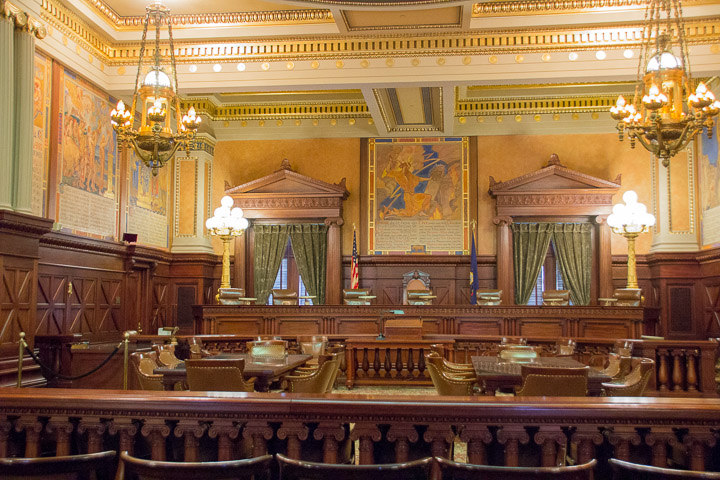Pennsylvania Supreme Court steps into congressional redistricting fight
3 min read
The Pennsylvania Supreme Court has halted Commonwealth Court proceedings to choose a new congressional map, a sign the high court could take over the case.
The Supreme Court issued a stay to consider an emergency application filed by Elias Law Group LLP on behalf of Pennsylvania voters that requested the high court intervene in the redistricting case.
The filing, which was submitted over the weekend, contends any map chosen by the Commonwealth Court will be appealed to the Supreme Court, and Elias Law Group LLP is urging justices to take up the case now without delay.
“Now that the evidentiary record is closed, this court should immediately take extraordinary jurisdiction, adopt a map as soon as possible, and provide all Pennsylvanians with the finality they so urgently seek,” the filing read.
The Supreme Court issued the stay Monday, pending review of the application, with Republican Justices Sallie Updyke Mundy and P. Kevin Brobson noting their dissent.
“Petitioners having filed an Emergency Application for Extraordinary Relief in the form of a request that this Court exercise extraordinary jurisdiction, the proceedings of the Commonwealth Court in the above captioned matter are stayed temporarily pending receipt of the parties’ answers and resolution of the application,” the order read.
The move follows arguments last week in the Commonwealth Court over a dozen proposed congressional district maps submitted by lawmakers, partisan advocacy groups and others.
The court proceedings come on the heels of Gov. Tom Wolf’s veto of House Bill 2146 last week. The bill contained congressional districts crafted by Lehigh County resident Amanda Holt, a map selected from 19 submitted by the public to the House State Government Committee. The committee amended the map before it was approved by the General Assembly last week.
Wolf outlined the reasons for rejecting HB 2146 in a veto message that echoed many of the same concerns he raised to Republican leaders after it was approved by the House State Government Committee in December.
Wolf argued “the revised map splits multiple communities of interest, including splits in Luzerne, Dauphin, Philadelphia and Chester counties that do not appear to be motivated by compelling legal principles, but rather by a desire to make districts more favorable to Republican candidates,” the veto message read.
The governor also said the map is inconsistent with statewide voter preference because it gives “a structural advantage to Republican candidates that far exceeds the party’s voter support.”
The veto message cited redistricting criteria set by the Pennsylvania Supreme Court that “the HB 2146 map does not adequately satisfy,” and said “Democratic members of the General Assembly were completely cut out of the process of selecting the map from start to finish.”
Rep. Seth Grove, R-York, sponsor of HB 2146 and chair of the House State Government Committee, said Wolf’s veto shifted the redistricting process to a less transparent venue in the courts, where the Supreme Court’s 5-2 Democrat advantage holds ultimate sway.
“We went from a redistricting process that was open to every Pennsylvanian, took into account feedback from countless residents and a Legislature-approved map drawn by a citizen to the Wolf way of having a few select members of the judiciary decide which map will be used,” Grove said.
Census data shows Pennsylvania’s population of 12.8 million grew slower than other states at about 2.4% over the past decade, resulting in a reduction of congressional delegates from 18 to 17. The current delegation is split 9-9 between Democrats and Republicans, with U.S. Democratic Reps. Conor Lamb and Mike Doyle not seeking reelection this year.
This article was originally posted on Pennsylvania Supreme Court steps into congressional redistricting fight







